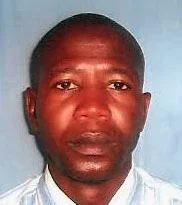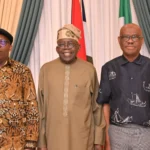Afolabi Gambari
As it was in the previous years, there were fresh hopes in 2024 for the Nigerian child to not only stay alive but also stay healthy, thanks to the hard work of UNICEF, which initiated actions or complemented efforts by the government in the country. Sustaining the fresh hopes would, however, require greater efforts and nothing else would make the efforts manifest other than getting on the field to feel the pulse. Amid the fresh hopes, there were also a few loose ends to be tightened to get the desired results that would benefit the Nigerian child in the short and long terms. Therein laid the need for media partnership to help bring the efforts to fruition through sustained advocacy and publicity.
At a two-day dialogue organised by UNICEF in conjunction with the Child Rights Information Bureau (CRIB) of the Federal Ministry of Information and National Orientation held in Kano on May 29 and 30, 2024, participants reviewed efforts that were made in the previous years, drawing fresh efforts at moving forward. They travelled about 20 kilometres from Nasarawa GRA, Kano to Tsamiya Babba in Gezawa Local Government of the state to witness the outpouring of women at the Basic Health Centre to get children under 0 to 5 years vaccinated. At the facility, a hundred vaccinations were targeted weekly and could stretch to more in some weeks, depending on how many the needy got, although in no week did the number of vaccinated children fall below 30, grossing up to 300 in a month and as many as 3,100 in a year.
At a similar facility in the Gwagwarwa area of the Kano metropolis, several people were also vaccinated, although unlike at Tsamiya Babba where only children between 0 and 5 years old were vaccinated, this particular centre welcomed children of older age, especially school children between 9 and 14 years who had come for the Human Papillomavirus (HPV) infection vaccine.
But at the Tsamiya Babba centre, there was a shortage of staff to adequately cope with the multitude of needy so that no one was kept waiting unnecessarily too long to be attended to. Officials however said efforts were being made to make up for the shortfall by augmenting the 10 staff on the ground with 24 volunteers.
UNICEF admitted that the 70 per cent success achieved by child vaccination in northern Nigeria up till that period deserved commendation, even though the world body warned that the success should rather be treated as a process than an event as more challenges still laid ahead with the record of non-compliance to vaccination standing at 111,000, in addition to 31, 000 kids that had remained unvaccinated, which translated to a disturbing reality that by 2029, a greater number of children would not have got vaccinated.
It was gathered that UNICEF was working closely with the Federal Ministry of Health to establish two primary health care centres in each ward of the 774 local government areas of Nigeria, although that appeared to be a long-term plan, even as the lofty goal must be attained to ensure sound health for the country’s future.
A Lekki, Lagos event of October 24 2024, when UNICEF marked World Polio Day, trailed the Kano event and child survival also remarkably came to the fore; the target being mainly to stamp out polio from the Nigerian firmament through a collective effort. At the event, a total war was also declared on measles and other preventable diseases afflicting the Nigerian child.
The checklist of music stars and celebrity actors from across West and Central Africa at the Lagos event made a huge pronouncement. They include Ali Nuhu of the Kannywood fame, as well as Cobhams Asuquo, Kate Henshaw, Master Soumy, Mawndoe, Omawumi, Spyro, Stanley Enow, Timi Dakolo, WAJE, Qing Madi and Sekouba Bambino. They had collaborated to release a song titled “No More Zero Dose” to help drive childhood immunisation into people’s consciousness.
During the same period, research showed that West and central Africa recorded the lowest immunisation coverage in the world as the Diphtheria-tetanus-pertussis (DTP3) coverage for both regions was 69 per cent in 2023, down from 72 per cent in 2019. This is in addition to the regions recording multiple vaccine-preventable disease outbreaks, including polio, measles, diphtheria and yellow fever, in recent years. Reports also emerged that there were 138 polio cases in Africa, with nearly half of the infected children from Nigeria. It all made the event more significant in charting the way forward for the health of Nigeria.
To cap the year, another media dialogue was held on December 4 and 5 2024 in Calabar, Cross River State focusing on child survival; an opportunity to once again review the activities of 2024 and marshal fresh plans for 2025.
The child-saving efforts are still ongoing and will continue for as long as there is unanimity that the survival of the Nigerian child has a direct link to a healthy future for the country in all sectors of national life.








